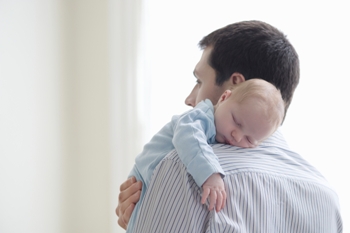 From the common cold to constipation, babies are more prone to infection than adults and can become ill quickly. Dad Info gives you the low down of a baby’s most common complaints…
From the common cold to constipation, babies are more prone to infection than adults and can become ill quickly. Dad Info gives you the low down of a baby’s most common complaints…
Newborn babies are adjusting to life outside the protection of the womb and all the new germs and infections that their bodies will encounter. They are also having to feed for the first time and there can be problems with digestion in the first few weeks.
Just like adults, babies can pick up illness from their environment and other people. It is quite normal for babies to become ill without it getting serious.
Diarrhoea
The most common complaints are listed below, and you may also like to read about common birth defects and other conditions.
Marked by more frequent, more liquid poos, sometimes with vomiting and fever. The cause is usually a viral infection (although it can also be bacterial or the result of feeding problems, milk intolerance and resistance to antibiotics). Usually treated by giving the baby cooled, boiled water between feeds to avoid dehydration.
Vomiting
Don’t worry if your baby brings up small amounts of milk shortly after feeding (or during) but real vomiting, when she throws up large amounts, may be caused by milk intolerance, viruses or bacteria. If your baby is projectile vomiting or has blood in her vomit, contact your doctor immediately.
Major symptoms to watch out for in your child
Constipation
The baby can’t poo. It’s unusual in the early weeks, but after that it may be the result of a change of diet (such as a new milk formula or moving onto new solid foods). It is marked by hard, dry, infrequent stools. It should sort itself out within a few days and usually the solution is to give the baby more liquids – cooled boiled water is ideal.
Fever
If your baby is under three months and has a body temperature of over 38C (100.4F) they have a fever and you should contact your doctor. A newborn may develop a fever because the mother has an infection or because they’ve been exposed to a virus from another source. Watch carefully until their temperature goes down.
Colds
All babies get colds, and some can last weeks (and may lead to ear infections and sore throats). Just like colds in adults there is no real cure except time and rest. A blocked nose makes feeding difficult so encourage more regular, smaller feeds and additional fluids.
Oral thrush
This is caused by a fungus (yeast) called candida albicans. Usually occurs if teats and such like haven’t been sterilised correctly. Babies can also get oral thrush if your partner is breastfeeding and on antibiotics. Look for white patches on the tongue and inside the mouth, and nappy rash. Visit your GP who will give you a gel to put on your newborn’s a gel tongue to get rid of the thrush.
Eye infections
Blocked tear ducts affect about five per cent of newborns, making them more prone to eye infections. One of the most common is conjunctivitis (‘sticky eye’) – caused by a viral infection that comes with a cold. Look out for red eyelids, eye discharge and mucus in the corner of the eye. Keep their eyes clean by wiping them with fresh cotton wool dabbed in cooled boiling water.








